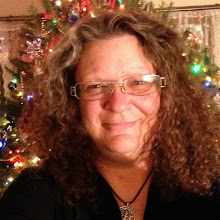British Romantic Period Overview Transcription
Podcast
Beth Ritter-Guth: Hi, my name is Beth Ritter-Guth, I teach English 211, British Literature II for Lehigh Community College, and what I'd like to do is take a few minutes to go over some notes about the British Romantic period. You'll be reading a lot of different texts from the period.
I'm pretty excited about the period, actually, because it is my favorite in British literature. It's my favorite because it's marked by some crazy, crazy characters. Lord Byron is a crazy guy. John Keats writes these incredible love letters to Fanny Braun -- it's a great age. I don't want to give you a lot of notes, I could probably really go overboard, and I don't want to do that, I don't want to bombard you with information, but I do want to give you an outline of some things that I'd like to pay attention to -- some key people you might be interested in jotting down in your notes.
Basically, the British Romantic period is defined by the reign of two kings. The first is George the Third, he was very eccentric; he was an odd kind of guy and people loved talking about his health and his eccentric behavior. He had really unruly children, one of them whom becomes king after him, George the fourth, who was very extravagant. He had a ton of mistresses and he was very sexually promiscuous and he was considered politically incompetent. So these two leaders are controlling England, and the extravagance and the way they distributed their wealth -- very flashy -- does have a pretty big impact on the society.
The British Romantic period is, of course, marked by two wars, the American Revolution for Independence and the French Revolution, and then the Industrial Revolution, which is not an exact event of course, but has had the most impact on both the British and the global culture. The Industrial Revolution, of course, makes things more readily available, there's a rise in the middle class, the rich are getting richer, the poor are getting poorer, travel is possible because railroads are being put in all over the place and people can get around to different places a little bit faster. Lord Byron called it the age of oddities. Certainly, I think, that is a good way to look at the British Romantic Period.
Besides Byron, the other primary writers of the time are William Blake, Samuel Taylor Coleridge, William Wordsworth, Sir Walter Scott, Robert Southy, Charles Lamb, Lord Byron, of course, I already mentioned him, Percy Shelley, Mary Shelley, John Keats, William Godwin, Lee Hunt and Jane Austen. Jane Austen writes at the same time, but she is not considered romantic.
What's interesting about these folks is that often they are said to be responding to the previous period, the Classicist period, and that their interest in the exotic and the foreign contradicts the writing of the period before. But, really that isn't exactly altogether true because these writers did return to what we would call native themes, or traditional themes. They do revisit and uncover a lot of historical texts and historical ideas.
They were kind of frustrated, especially the poets, because the reading public, especially the middle class, wasn't all that interested in this kind of literature, they were much more interested in what we would consider Harlequin Romance kind of stuff, so they were a little bit frustrated that the audience wasn't more intelligent or more engaged by their writing, which is interesting if we think about it now.
The romantic age, if we could put it in a nutshell, what we call the romantic imagination could be summed up as an age of transition. There's a lot going on all around the world. A lot of political unrest, a lot of radical ideas are being thought about and expressed, and of course, wars are happening. There's a focus on the foreign, the exotic, on being frivolous, and, of course, that comes down from the leadership in England. The poets see this as an opportunity for a new order; for a new way to express ideas, and certainly, the Romantic period does reflect those ideas.
I like the Romantic period; I like John Keats the best. I think I like his letters the most because I believe that for the first time we're seeing a lot of the philosophy or the understanding about science, nature and religion -- we're seeing that really come through quite clearly, in some of the writing of the time. And so, I think that the writing is rich and exciting and the language is beautiful, of course.
Those are the notes I want to give you. Not too many notes; I wanted to keep this kind of short. You have tons and tons of stuff to read and take notes from. Remember that anything listed on the wiki is fair game is fair game for the mid-term exam, so please take careful notes as you read.
Transcription by CastingWords



0 Comments:
Post a Comment
<< Home